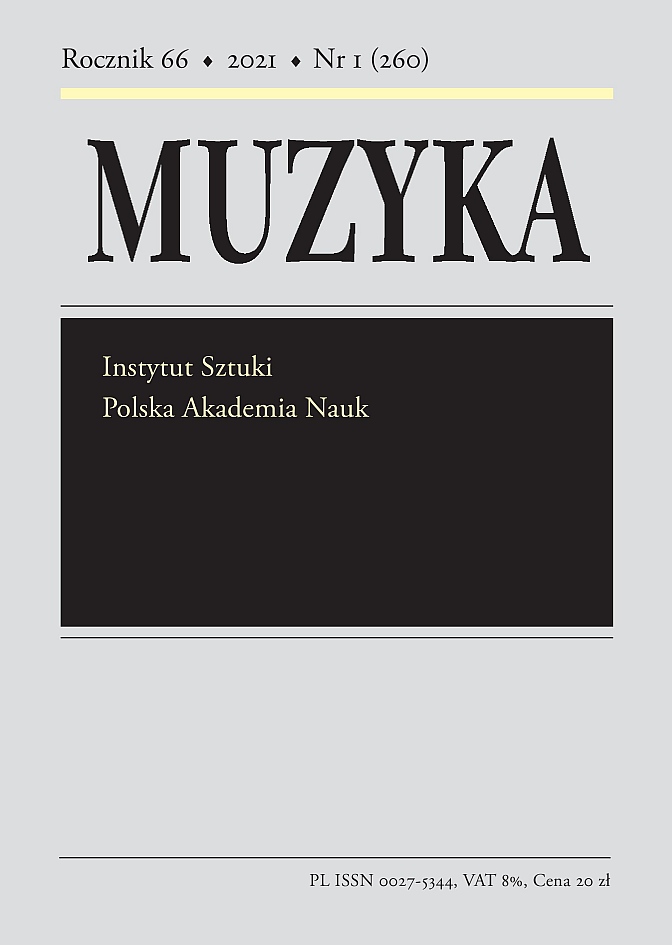Sztuka gry na instrumentach klawiszowych początku XV wieku a średniowieczna mnemotechnika
The Art of Playing Keyboard Instruments in the Early Fifteenth Century and the Medieval Mnemonics
Author(s): Ryszard LubienieckiSubject(s): Music
Published by: Instytut Sztuki Polskiej Akademii Nauk
Keywords: late medieval music; Central Europe; keyboard instruments; memory; mnemonics; performance practice; improvisation
Summary/Abstract: Keyboard playing is a musical discipline in which the ‘suspension’ between oral and written traditions seems to be particularly strongly felt. I place the early fifteenth-century ars organica in the context of memory-based culture and present the consequences of such a perspective for the study and perception of the surviving musical repertoire. My basic source material consists of two anonymous organ treatises, Octo principalia de arte organisandi and Opusculum de arte organica, found in manuscript M.CIII, which is now held in the Library of the Metropolitan Chapter in Prague.In the first part of my article, I analyse the structure of the Prague organ treatises in the context of the mediaeval ars memoriae. I point out such mnemonic techniques as numerical orders, information marked in the text with the word nota (Lat. for ‘note’ or ‘remember’), and persuasive devices.The second part is devoted to issues directly concerning keyboard practice. I first discuss the basic melodic-rhythmic models (tactus) with reference to the preserved musical repertoire (the Faenza Codex and such incomplete sources as the Prague organ fragments). Analysis carried out by numerous authors shows a similarity between the tactus figures in the treatises and those found in the surviving organ tablatures. I subsequently relate the structure of the treatise Opusculum de arte organica to Jeff Pressing’s theory of improvisation and compare two compositions (Kyrie Magne Deus from the Prague organ fragments, CZ-Pnm 1D a 3/52, recto, and Kyrie Cunctipotens genitor Deus from the Faenza Codex, I-Fz MS 117, fol. 79r–79v) from the perspective of shaping the musical process through improvisation. On the basis of this comparison, I stress the importance of the ‘internalisation’ of the key melodic patterns, necessary for improvisation, thereby drawing attention to the physiological aspect of playing the instrument, reflected in the word tactus (Lat. for ‘touch’, ‘the sense of touch’). The article ends with remarks concerning the art of memory and the related problem of a medieval composer’s individuality.
Journal: Muzyka
- Issue Year: 66/2021
- Issue No: 1
- Page Range: 26-48
- Page Count: 23
- Language: Polish

